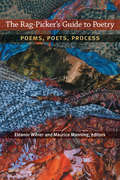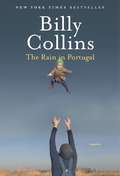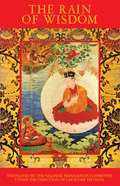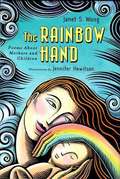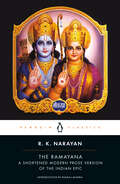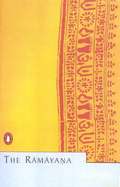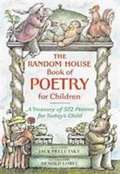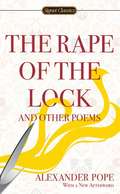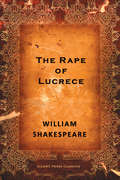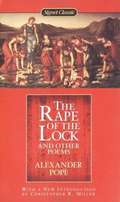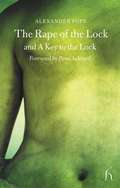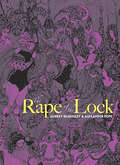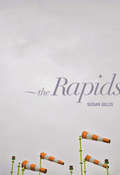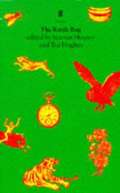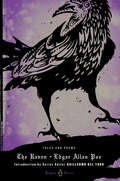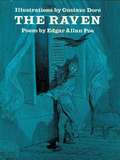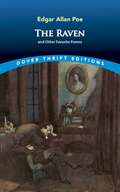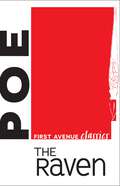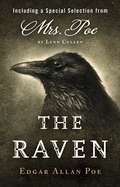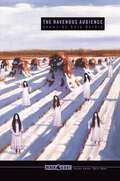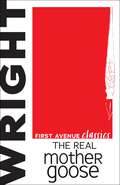- Table View
- List View
The Rag-Picker's Guide to Poetry: Poems, Poets, Process
by Maurice Manning Eleanor WilnerThe venture of this inviting collection is to look, from the many vantages that the 35 poets in this eclectic anthology chose to look, at what it was--knowing that a poem can't be conceived in advance of its creation--that helped their poems to emerge or connected them over time. The Rag-Picker's Guide to Poetrypermits an inside view of how poets outwit internal censors and habits of thought, showing how the meticulous and the spontaneous come together in the process of discovery. Within are contained the work and thoughts of: Betty Adcock Joan Aleshire Debra Allbery Elizabeth Arnold David Baker Rick Barot Marianne Boruch Karen Brennan Gabrielle Calvocoressi Michael Collier Carl Dennis Stuart Dischell Roger Fanning Chris Forhan Reginald Gibbons Linda Gregerson Jennifer Grotz Brooks Haxton Tony Hoagland Mark Jarman A. Van Jordan Laura Kasischke Mary Leader Dana Levin James Longenbach Thomas Lux Maurice Manning Heather McHugh Martha Rhodes Alan Shapiro Daniel Tobin Ellen Bryant Voigt Alan Williamson Eleanor Wilner C. Dale Young
The Rain in Portugal: Poems
by Billy CollinsFrom former U.S. Poet Laureate Billy Collins comes a twelfth collection of poetry offering nearly fifty new poems that showcase the generosity, wit, and imaginative play that prompted The Wall Street Journal to call him "America's favorite poet." The Rain in Portugal--a title that admits he's not much of a rhymer--sheds Collins's ironic light on such subjects as travel and art, cats and dogs, loneliness and love, beauty and death. His tones range from the whimsical--"the dogs of Minneapolis . . . / have no idea they're in Minneapolis"--to the elegiac in a reaction to the death of Seamus Heaney. A student of the everyday, here Collins contemplates a weather vane, a still life painting, the calendar, and a child lost at a beach. His imaginative fabrications have Shakespeare flying comfortably in first class and Keith Richards supporting the globe on his head. By turns entertaining, engaging, and enlightening, The Rain in Portugal amounts to another chorus of poems from one of the most respected and familiar voices in the world of American poetry. On Rhyme It's possible that a stitch in time might save as many as twelve or as few as three, and I have no trouble remembering that September has thirty days. So do June, November, and April. I like a cat wearing a chapeau or a trilby, Little Jack Horner sitting on a sofa, old men who are not from Nantucket, and how life can seem almost unreal when you are gently rowing a boat down a stream. That's why instead of recalling today that it mostly pours in Spain, I am going to picture the rain in Portugal, how it falls on the hillside vineyards, on the surface of the deep harbors where fishing boats are swaying, and in the narrow alleys of the cities where three boys in tee shirts are kicking a soccer ball in the rain, ignoring the window-cries of their mothers.
The Rain of Wisdom: The Essence of the Ocean of True Meaning
by Nalanda Translation CommitteeThe art of composing spontaneous songs that express spiritual understanding has existed in Tibet for centuries. Over a hundred of these profound songs are found in this collection of the works of the great teachers of the Kagyü lineage, known as the Practice Lineage of Tibetan Buddhism.Many readers are already familiar with the colorful life of the yogin Milarepa, an early figure in the Kagyü lineage, some of whose songs are included here. Songs by over thirty other Buddhist teachers are also presented, from those of Tilopa, the father of the lineage, to those of the Sixteenth Gyalwa Karmapa, as well as several songs by Chögyam Trungpa, the noted teacher of Buddhism in America who directed the translation of The Rain of Wisdom.The diversity of the songs mirrors the richness of Tibetan Buddhism and gives us clear portraits of some of its most eminent teachers. Their longing for truth, their heartfelt devotion, and their sense of humor are all reflected. These poems share a beauty and intensity that have made them famous in Tibetan literature. With its vivid imagery and deep insight, The Rain of Wisdom communicates a profound and timeless understanding.
The Rainbow Hand: Poem About Mothers and Children
by Janet S. WongA collection of eighteen original poems about mothers and motherhood, including "Mother's Heart," "Old Mother Chung," and "The Pilot."
The Ramayana
by R. K. NarayanRama's stepmother Kaikeyi longs to see her son Bharata crowned king, and persuades King Dasaratha that Rama, the rightful heir, should be sent into exile for fourteen years. Rama's beautiful and devoted wife Sita, and Lakshmana his inseparable half-brother, both choose to accompany him. Rama, Sita and Lakshmana live happily in the forest until the demon king Ravana is told by his sister that Sita is the most beautiful princess in the world. He decides to kidnap her, and lures her away to his kingdom in the south. Rama and Lakshmana must rescue Sita, and call on the great monkey army, led by the warrior Hanuman, to help them find her. Rama uses his time in exile to learn the true meaning of devotion and loyalty, but will the lessons earn him the reward he deserves?
The Ramayana
by ValmikiAn idealized heroic tale ending with the inevitable triumph of good over evil, the Ramayana is also an intensely personal story of family relationships, love and loss, duty and honour, of harem intrigue, petty jealousies and destructive ambitions. All this played out in a universe populated by larger-than-life humans, gods and celestial beings, wondrous animals, and terrifying demons.
The Ramayana: A Shortened Modern Prose Version of the Indian Epic
by R. K. NarayanThe greatest Indian epic, one of the world's supreme masterpieces of storytelling A sweeping tale of abduction, battle, and courtship played out in a universe of deities and demons, The Ramayana is familiar to virtually every Indian. Although the Sanskrit original was composed by Valmiki around the fourth century BC, poets have produced countless versions in different languages. Here, drawing on the work of an eleventh-century poet called Kamban, Narayan employs the skills of a master novelist to re-create the excitement he found in the original. A luminous saga made accessible to new generations of readers, The Ramayana can be enjoyed for its spiritual wisdom, or as a thrilling tale of ancient conflict.For more than seventy years, Penguin has been the leading publisher of classic literature in the English-speaking world. With more than 1,700 titles, Penguin Classics represents a global bookshelf of the best works throughout history and across genres and disciplines. Readers trust the series to provide authoritative texts enhanced by introductions and notes by distinguished scholars and contemporary authors, as well as up-to-date translations by award-winning translators.From the Trade Paperback edition.
The Rambling Muse
by Ruth Lanier HesterA book of fifty-two poems that will remain in memory long after the book has been read. They cover diverse topics-the environment, children, religious themes, death, and the seasons-just a few examples. These poems echo peals of laughter and pain beyond tears.
The Random House Book of Poetry for Children
by Jack Prelutsky572 fine, illuminating, funny poems for children - a wealth of riches from the past and glittering gems for the present.
The Rape Of The Lock
by Alexander Pope Cynthia WallThis edition reprints the text of Pope's classic poem -- both the five-canto 1714 version and the facsimilie of the original 1712 version -- together with a broad selection of documents. Including correspondence, poems, broadsides, reviews, and parodies, the documents focus special attention on Pope's life and career as well as on eighteenth-century poetic traditions and innovations, social habits and assumptions, historical events, and political implications. A general introduction providing historical and cultural background, a chronology of Pope's life and times, an introduction to each thematic group of documents, headnotes, extensive annotations, a selected bibliography, and a generous collection of maps, portraits, and illustrations make this volume a unique scholarly edition of this classic work of eighteenth-century literature.
The Rape of Lucrece
by William ShakespeareWhen the king's son hears the chastity of one of his father's advisors praised, he sets out to sully her name, with tragic consequences.
The Rape of the Lock and Other Poems
by Alexander PopeAlexander Pope enjoyed in his lifetime a fame and fortune that few poets have received. Known for his brilliant epigrams, he was an uncompromising social critic and razor-sharp satirist of fashionable society's foibles. His poetry was characterized by a graceful mastery of the English language, a biting wit, and a moral alertness that ranged from contemptuous to compassionate to dryly humorous. Considered England's greatest living poet by the age of 25, Pope would be hailed by Lord Byron as "the greatest name in our Poetry. " Presented here in their entirety are several of Pope's principal works, including the delightful mock-epic, The Rape of the Lock, Windsor Forrest, Essay on Man, Eloïse to Abelard, Essay on Criticism, and his satirical masterpiece, The Dunciad. Together, they represent the writings of one of the Enlightenment's greatest poets. With notes and introduction by Martin Price, Christopher R. Miller
The Rape of the Lock: A Heroicomical Poem in Five Cantos, and a Key to the Lock
by Alexander PopePope's famous poem The Rape of the Lock, and his subsequent poem A Key to the Lock, written in response to critics of The Rape of the Lock.
The Rape of the Lock: An Heroi-comical Poem... (Dover Fine Art, History Of Art Series)
by Alexander Pope Aubrey BeardsleyOnly rarely in publishing history has the ideal edition of a literary work been created, where text, typography, and illustrations complement one another perfectly. Among the few examples are the Kelmscott Chaucer, Baskerville's Milton, and Beardsley's Salome. Another such book is the 1896 edition of Pope's The Rape of the Lock, illustrated by Aubrey Beardsley.Beardsley's elaborate drawings for The Rape of the Lock were created during the last phase of his brief career. This nearly Romantic period, characterized by rich, brilliantly imagined decoration and ornamentation and by high textual contrasts, was perfectly suited to the blend of mock-heroic, satire, and delicate fancy of Pope's poems. As Beardsley's biographer R. A. Walker wrote, "These drawings show a verve, a wit and appreciation of the poem than can scarcely be matched in English literature." Using his unique line and "black blot" technique, Beardsley created a masterpiece of design and mood.This Dover edition reproduces the first edition: the complete text of the five-canto poem, notes, seven full-page drawings, two half-page drawings, and the original cover design by Beardsley.
The Rapids
by Susan GillisUrgent and precarious, the poems in The Rapids, Susan Gillis’ third collection, take us to places lost and reclaimed: a balcony high over the St. Lawrence River in downtown Montreal, upstream to the Lachine Rapids, and beyond, to landscapes as far apart as Greece and the B.C. coast.
The Rattle Bag
by Seamus Heaney Ted HughesThe Rattle Bagis an anthology of poetry (mostly in English but occasionally in translation) for general readers and students of all ages and backgrounds. These poems have been selected by the simple yet telling criteria that they are the personal favorites of the editors, themselves two of contemporary literature's leading poets. Moreover, Heaney and Hughes have elected to list their favorites not by theme or by author but simply by title (or by first line, when no title is given). As they explain in their Introduction: "We hope that our decision to impose an arbitrary alphabetical order allows the contents [of this book] to discover themselves as we ourselves gradually discovered them--each poem full of its singular appeal, transmitting its own signals, taking its chances in a big, voluble world. " With undisputed masterpieces and rare discoveries, with both classics and surprises galore,The Rattle Bagincludes the work of such key poets as William Shakespeare, Walt Whitman, Emily Dickinson, Lewis Carroll, Dylan Thomas, Wallace Stevens, Elizabeth Bishop, and Sylvia Plath among its hundreds of poems. A helpful Glossary as well as an Index of Poets and Works are offered at the conclusion of this hefty, unorthodox, diverse, inspired, and inspiring collection of poetry.
The Raven
by Edgar Allan Poe Guillermo Del ToroA new six-volume series of the best in classic horror, selected by award-winning director Guillermo del Toro Filmmaker and longtime horror literature fan Guillermo del Toro serves as the curator for the Penguin Horror series, a new collection of classic tales and poems by masters of the genre. Included here are some of del Toro's favorites, from Mary Shelley's Frankenstein and Ray Russell's short story "Sardonicus," considered by Stephen King to be "perhaps the finest example of the modern Gothic ever written," to Shirley Jackson's The Haunting of Hill House and stories by Ray Bradbury, Joyce Carol Oates, Ted Klein, and Robert E. Howard. Featuring original cover art by Penguin Art Director Paul Buckley, these stunningly creepy deluxe hardcovers will be perfect additions to the shelves of horror, sci-fi, fantasy, and paranormal aficionados everywhere. The Raven The Raven: Tales and Poems is a landmark new anthology of Poe's work, which defied convention, shocked readers, and confounded critics. This selection of Poe's writings demonstrates the astonishing power and imagination with which he probed the darkest corners of the human mind. "The Fall of the House of Usher" describes the final hours of a family tormented by tragedy and the legacy of the past. In "The Tell Tale Heart," a murderer's insane delusions threaten to betray him, while stories such as "The Pit and the Pendulum" and "The Cask of Amontillado" explore extreme states of decadence, fear and hate. The title narrative poem, maybe Poe's most famous work, follows a man's terrifying descent into madness after the loss of a lover.
The Raven
by Edgar Allan Poe Gustave DoréIn Gustave Doré, one of the most prolific and successful book illustrators of the late 19h century, Edgar Allan Poe's renowned poem The Raven found perhaps its most perfect artistic interpreter. Doré's dreamlike, otherworldly style, tinged with melancholy, seems ideally matched to the bleak despair of Poe's celebrated work, among the most popular American poems ever written.This volume reprints all 26 of Doré's detailed, masterly engravings from a rare 19th-century edition of the poem. Relevant lines from the poem are printed on facing pages and the complete text is also included. Admirers of Doré will find ample evidence here of his characteristic ability to capture the mood and meaning of a work of literature in striking imagery; lovers of The Raven will delight in seeing its mournful musing on love and loss given dramatic pictorial form.A selection of the Common Core State Standards Initiative.
The Raven and Other Favorite Poems (Dover Thrift Editions: Poetry Ser.)
by Edgar Allan PoeOne of the most famous poems in the English language, "The Raven" first appeared in the January 29, 1845, edition of the New York Evening Mirror. It brought Edgar Allan Poe, then in his mid-30s and a well-known poet, critic, and short story writer, his first taste of celebrity on a grand scale. "The Raven" remains Poe's best-known work, yet it is only one of a dazzling series of poems and stories that won him an enduring place in world literature.This volume contains "The Raven" and 40 others of Edgar Allan Poe's most memorable poems, among them "The Bells," "Ulalume," "Israfel," "To Helen," "The Conqueror Worm," "Eldorado," and "Annabel Lee." Together they reveal the extraordinary spectrum of Poe's personality -- his idealism; his visionary qualities; his responsiveness to beauty, to love, and to women; and his susceptibility to the eerie and the morbid. They reveal, too, his virtuoso command of poetic language, rhythms, and figures of speech -- command that would make his one of the most distinctive voices in all of poetry.A selection of the Common Core State Standards Initiative.
The Raven: A Melodrama (classic Reprint) (First Avenue Classics ™)
by Edgar Allan PoeDuring a dark night in December, a man sits in his room sadly thinking about his lost love, Lenore. Suddenly, he hears a tapping on the door, but no one is there. The noise moves to the window and the man opens it, only to see an ominous raven. The raven only has one thing to say and, as the night goes on, his haunting call of "Nevermore" begins to make the man more and more paranoid. This unabridged version of Edgar Allan Poe's eerie poem, first published in 1884, is accompanied by Gustave Doré's stunning woodcut illustrations.
The Raven: With The Philosophy Of Composition (Lezama Ser.)
by Edgar Allan PoeVisions in Poetry is an exciting and unique series of classic poems illustrated by outstanding contemporary artists in stunning hardcover editions. The fifth book in the series, Edgar Allan Poe's "The Raven," delves into the hidden horrors of the human psyche. Originally published in 1845, the poem is narrated by a melancholy scholar brooding over Lenore, a woman he loved who is now lost to him. One bleak December at midnight, a raven with fiery eyes visits the scholar and perches above his chamber door. Struggling to understand the meaning of the word his winged visitant repeats - "Nevermore!" - the narrator descends by stages into madness. Illustrator Ryan Price's exquisitely grim illustrations suggest a background story shaped by the narrator's guilt, embodied in the terrifying figure of the raven. Price's drypoint technique, with its rich blacks and feathery lines, perfectly captures the nightmarish atmosphere of this unforgettable poem.
The Ravenous Audience (Black Goat #0)
by Kate DurbinA startling debut volume, the latest in Chris Abani's Black Goat Poetry Series. "Christianity or cuisine, cinema or sex manuals, Eros or Thanatos, Artaud or Marilyn Monroe? Marry or suture or eat all of them and you are close to Ravenous. A brutal tour de force." --Juan Felipe Herrera, author of Half of the World in Light "Durbin's debut volume sizzles...Throughout this deeply feminist, groundbreaking collection, she employs both the elemental forces of her intellect and a vigorous intensity of startling imagery to implode or explode conventional notions of sexuality and womanhood." --Maurya Simon, author of Cartographies "Durbin writes first-rate traditional lyric poems, while at other times she writes poems that push the limits of the avant-garde and, most amazingly, at other times, she makes a loving marriage of the two! This is an exceptional debut by a young poet burning with talent." --Thomas Lux, author of God Particles Black Goat is an independent poetry imprint of Akashic Books created and curated by award-winning Nigerian author Chris Abani (author of Becoming Abigail and Song for Night). Black Goat is committed to publishing well-crafted poetry with a focus on experimental or thematically challenging work. The series aims to create a proportional representation of female poets and non-American poets, particularly poets from Africa. Little Red Riding Hood, Jezebel, Catherine Breillat's Fat Girl, Marilyn Monroe, Amelia Earhart, Pier Paolo Pasolini's Christ--these are only a few of the archetypal and pop cultural characters that populate Kate Durbin's strange and mesmerizing coming-of-age poetry collection, The Ravenous Audience.
The Reader's Anthology
by Robert PotterClassic and contemporary works by authors such as Maya Angelou, Laura Ingalls Wilder, Langston Hughes, and Robert Frost help students comprehend and enjoy fiction, nonfiction, poetry, and drama. In addition, each book has a controlled reading level and a strong vocabulary strand. Reading Level: 5-9 Interest Level: 6-12
The Real Mother Goose (First Avenue Classics ™)
by Blanche Fisher WrightThe identity of Mother Goose may remain a mystery, but the timeless appeal of the fairy tales and nursery rhymes associated with this cherished imaginary author has lasted for generations of young readers. This collection includes more than three hundred of Mother Goose's best-known and best-loved nursery rhymes for children. Here, Humpty Dumpty has a great fall, Jack and Jill go up the hill, and the dish runs away with the spoon. Peter Piper picks a peck of pickled peppers, little Miss Muffet sits on a tuffet, and Mother Goose herself rides through the air on a very fine gander. Also included are favorites such as "Three Blind Mice," "Little Bo-Peep," "Hot Cross-Buns," and "Mary, Mary, Quite Contrary." This collection, taken from the 1916 copyright edition, features charming full-color illustrations by Blanche Fisher Wright.
